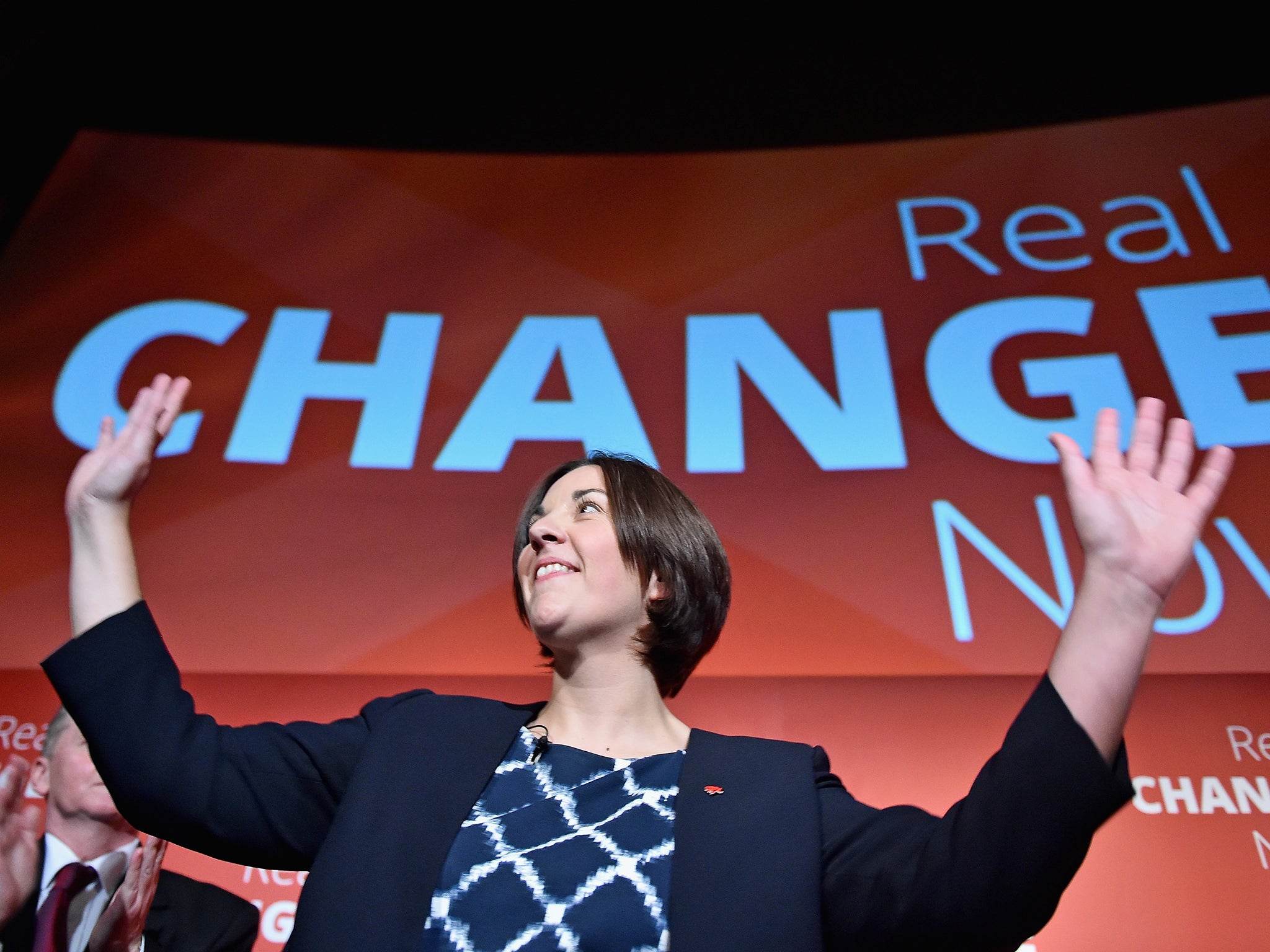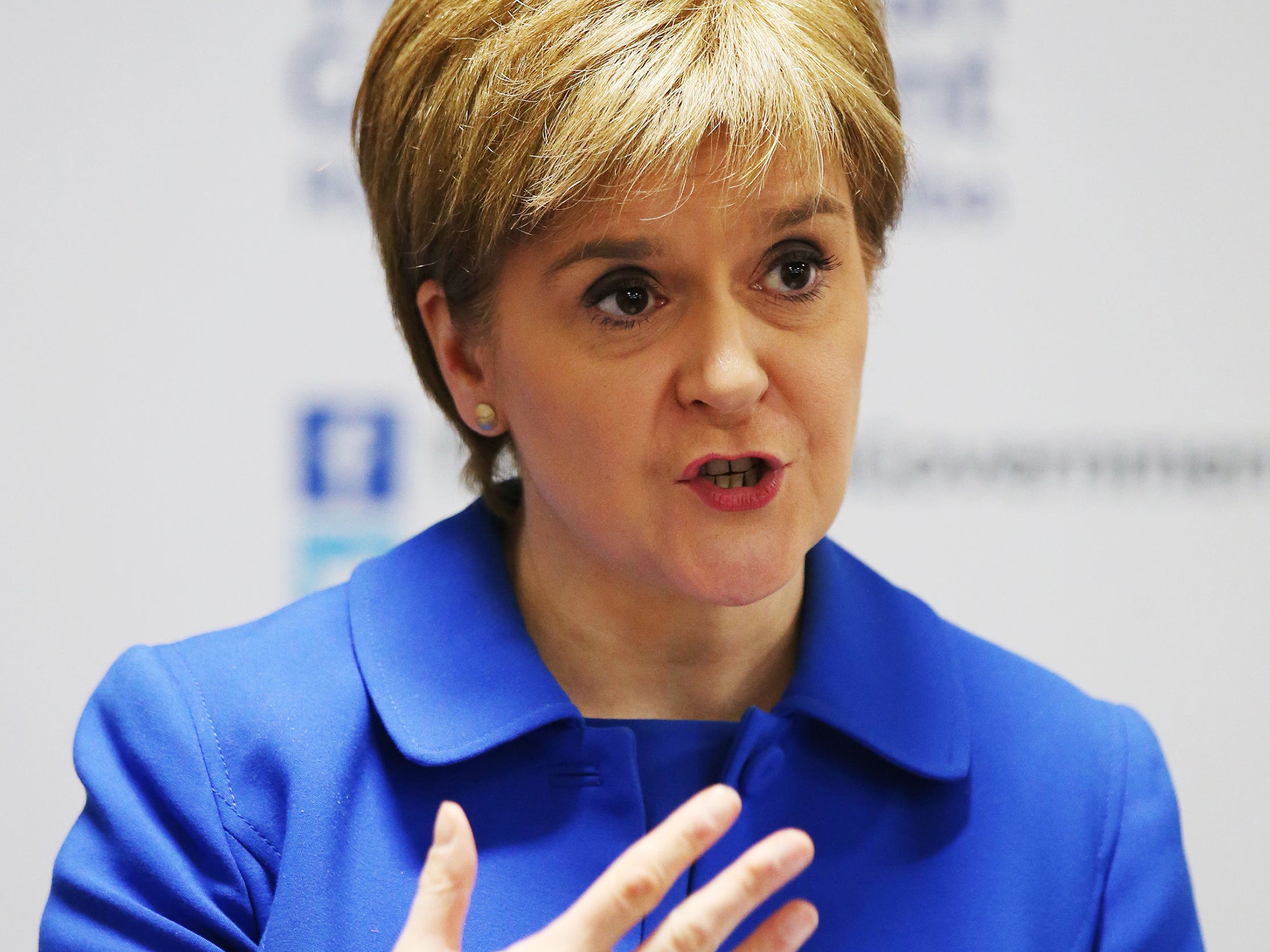Your support helps us to tell the story
From reproductive rights to climate change to Big Tech, The Independent is on the ground when the story is developing. Whether it's investigating the financials of Elon Musk's pro-Trump PAC or producing our latest documentary, 'The A Word', which shines a light on the American women fighting for reproductive rights, we know how important it is to parse out the facts from the messaging.
At such a critical moment in US history, we need reporters on the ground. Your donation allows us to keep sending journalists to speak to both sides of the story.
The Independent is trusted by Americans across the entire political spectrum. And unlike many other quality news outlets, we choose not to lock Americans out of our reporting and analysis with paywalls. We believe quality journalism should be available to everyone, paid for by those who can afford it.
Your support makes all the difference.Using the Scottish Government’s powers to put the top rate of income tax up to 50 per cent could cost it £30 million a year, the country’s First Minister has said.
Nicola Sturgeon said last week that she supported raising the top rate of tax to 50p across the whole UK, but that unilaterally doing so while still part of the UK would be a risky move.
The SNP leader said people could shift income to capital gains or leave Scotland - but that this was a “constraint” of devolution that might be rectified by independence.
“It makes no sense for anybody, no sense whatsoever, for anybody to propose a tax measure knowing that it might reduce the amount of revenue,” she told the BBC’s Good Morning Scotland programme.
“I will task the Council of Economic Advisers to look at how we might mitigate that risk. Now, it’s not just about people leaving the country – I set out figures last week that said if 7 per cent of the top taxpayers were to leave then that could lose £30m.
“But for example it could involve people choosing to transfer their income into capital gains. The Chancellor’s just cut capital gains tax and we have to look at whether there are ways in which we can mitigate. Now, that is one of the constraints of the devolution powers that we have.”
In November Scottish Labour leader Kezia Dugdale said she would raise the top rate of tax for earners over £150,000 to pay for improvements to schools in impoverished areas.
The rate is paid by roughly the top one per cent of PAYE earners across the UK, according to HMRC.

She said she would set up a “Fair Start Fund” as soon as April 2017 with the money.
The Scottish Government has had limited powers to vary tax rates but new ones set to be devolved by the Smith Commission give it greater flexibility about which rates to vary.
Scottish Labour has also pledged to raise Scottish income tax by one per cent, with rebates for low earners, in order to protect local front line services from £350 million of cuts.
Ms Dugdale said it was “shame” the SNP “can’t focus on asking the richest to pay their fair share”.
Ms Sturgeon said she would unveil “progressive and fair tax proposals that acutally allow us to increase revenue”.

Join our commenting forum
Join thought-provoking conversations, follow other Independent readers and see their replies
Comments